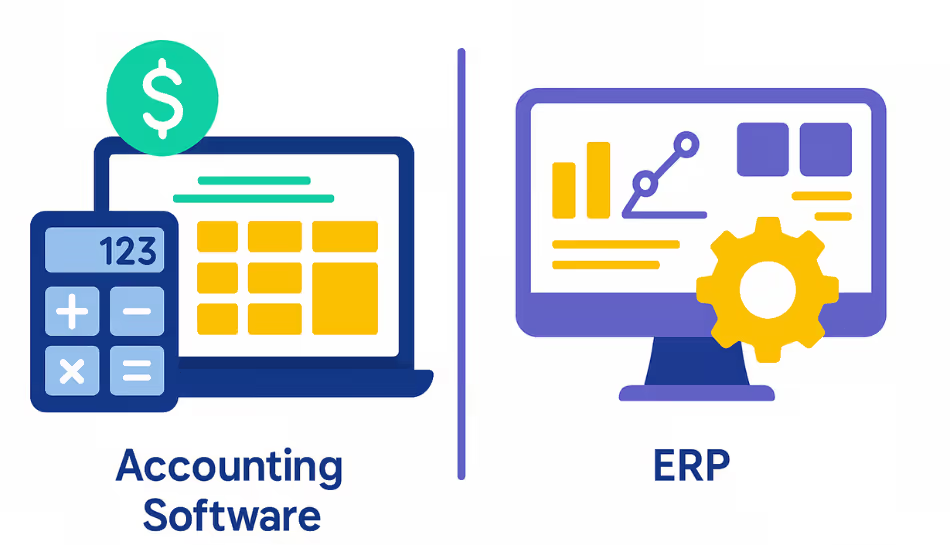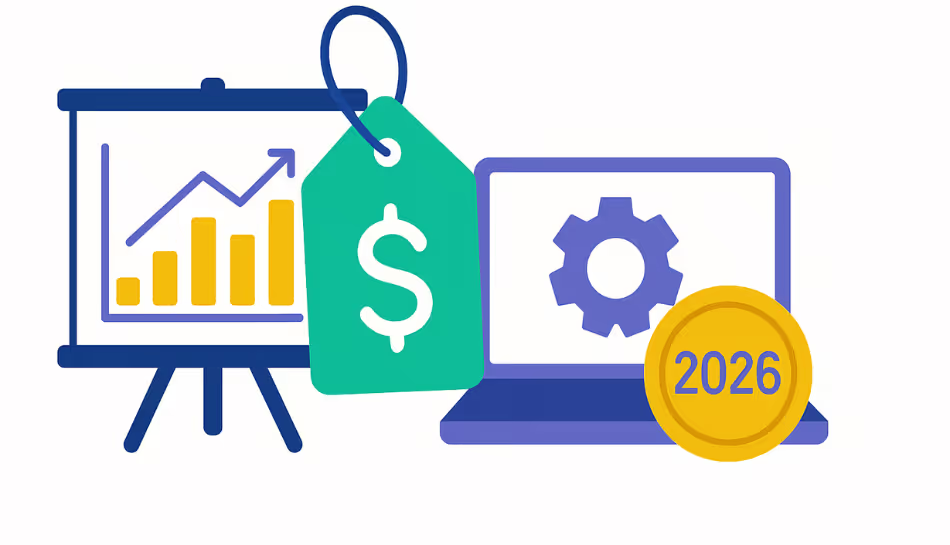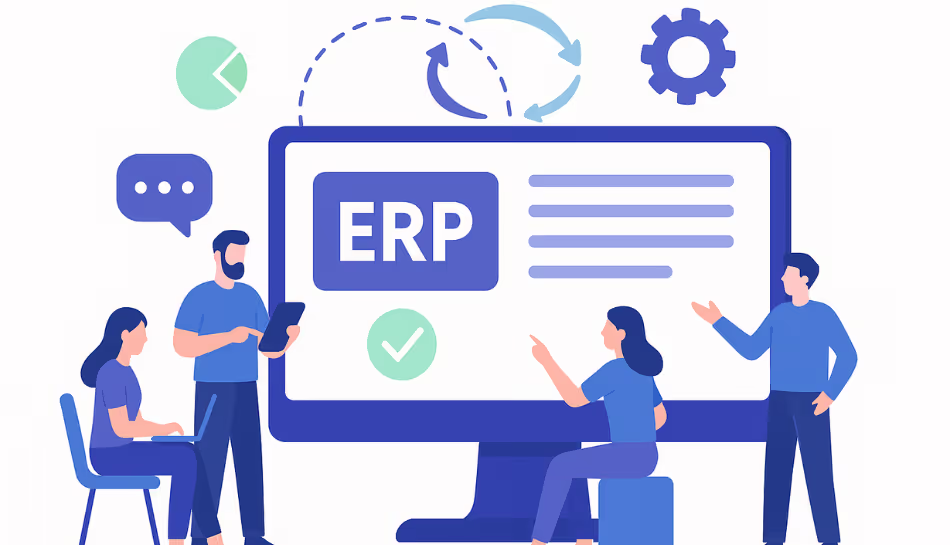
As businesses grow, managing operations with spreadsheets or standalone tools becomes inefficient. This leads to an important decision: should you choose dedicated accounting software or invest in a full ERP (Enterprise Resource Planning) solution? While both serve critical roles in business operations, they offer vastly different capabilities. Understanding the key differences between accounting and ERP software is essential to choosing the right fit for your organization.
What Is Accounting Software?
Accounting software is designed specifically to manage a company’s financial transactions and records. It handles core financial processes such as:
- General ledger
- Accounts payable and receivable
- Bank reconciliation
- Invoicing
- Payroll
- Tax reporting
Popular examples include QuickBooks, Zoho Books, and Tally. These systems are well-suited for small businesses or startups that primarily need to track income, expenses, and comply with basic regulatory requirements.
While accounting software is cost-effective and easy to implement, it has limitations when it comes to scalability and integration with other departments like inventory, HR, or procurement.
What Is ERP Software?
ERP software is a comprehensive system that integrates all core functions of a business into a single platform. In addition to accounting, ERP typically includes modules for:
- Inventory and warehouse management
- Human resources
- Customer relationship management (CRM)
- Supply chain and procurement
- Production and manufacturing
- Project management
An ERP system offers a unified database where data from all departments is accessible and interconnected. This ensures consistency, real-time visibility, and improved collaboration across teams.
For example, when a sale is made, the ERP system automatically updates the inventory, generates an invoice, records the financial transaction, and schedules delivery, all within one system.
ERP vs Accounting Software: Key Differences
Here’s how ERP vs accounting software compares across major business needs:
1. Scope and Functionality
- Accounting software focuses solely on financial data.
- ERP software covers a broad range of business processes beyond just accounting, offering a holistic view of operations.
2. Integration Across Departments
- Accounting tools usually operate in isolation or require third-party integrations.
- ERP offers built-in modules for every department, ensuring data flows smoothly from one function to another.
3. Scalability
- Accounting software is best for small to medium-sized businesses with limited growth plans.
- ERP systems are designed for scalability, supporting growing teams, new locations, and complex workflows.
4. Data Visibility
- With accounting tools, data is often siloed. Managers may not have access to real-time insights across departments.
- ERP enables centralized data access, providing accurate, up-to-date reports for better decision-making.
5. Automation and Efficiency
- Accounting software automates basic financial tasks.
- ERP automates end-to-end processes, from order management to payroll, reducing manual effort and errors.
6. Cost and Implementation
- Accounting software is generally cheaper and faster to deploy.
- ERP systems require more investment in terms of time, cost, and change management but deliver far greater long-term value.
Choosing Between Accounting and ERP Software
The choice depends on your business size, complexity, and future plans.
- If you run a small business with straightforward financial needs, accounting software may suffice.
- If your organization has multiple departments or plans to scale, an ERP solution will serve you better by integrating financials with operations.
Many businesses start with accounting software and later migrate to ERP when they outgrow its capabilities.
Final Thoughts
While accounting software handles your finances, ERP gives you complete control over your entire business ecosystem. The difference between accounting and ERP software isn’t just in functionality, it’s in the mindset. Accounting tools help you manage numbers. ERP systems help you manage growth.
Understanding the difference between ERP vs accounting software ensures that you invest in technology aligned with your business goals. Whether you need to streamline bookkeeping or drive enterprise-wide efficiency, choosing the right system is a crucial step toward long-term success.

